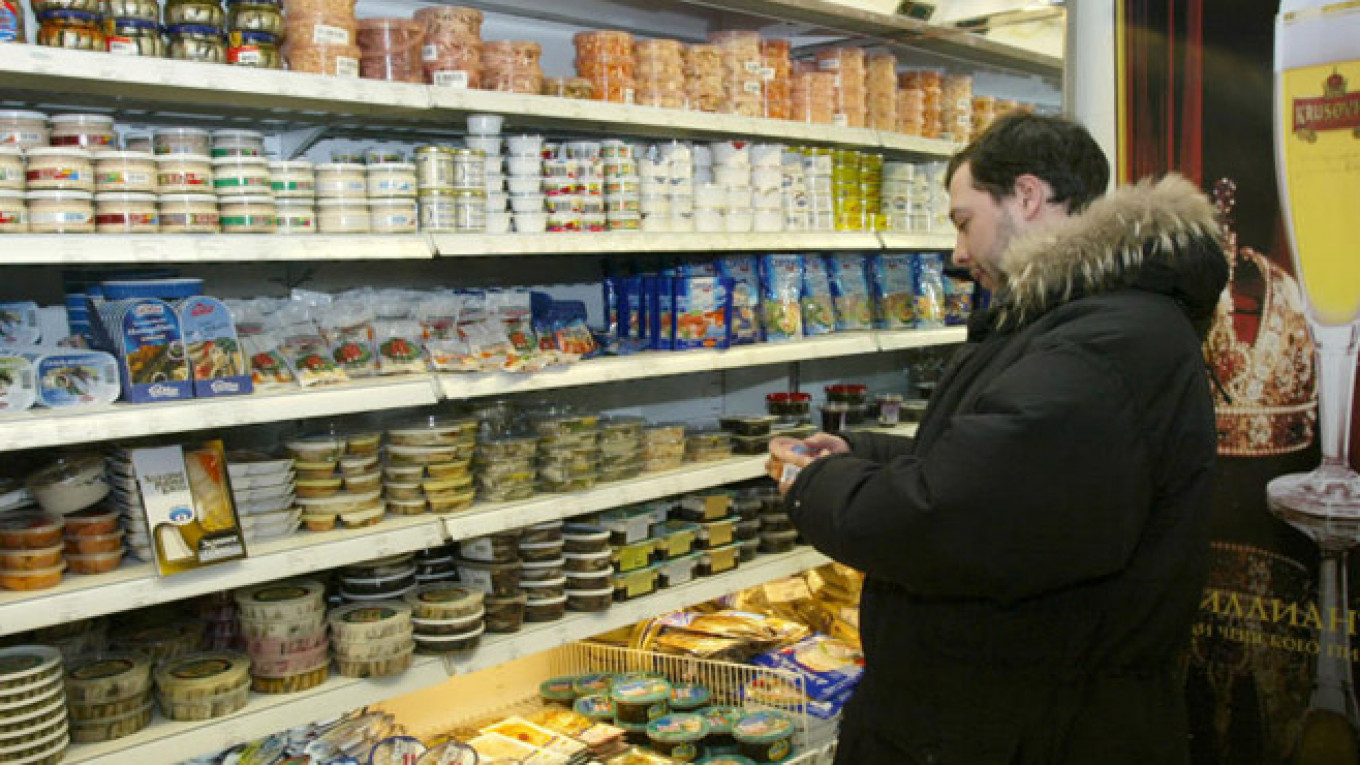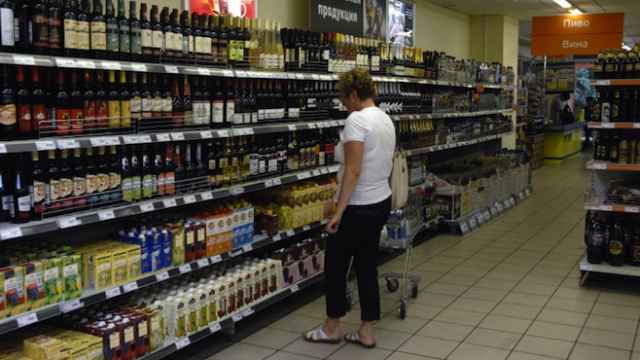More and more Russians are buying canned goods as rising inflation, particularly of food prices, cuts into real wages amid the nation's deepening economic crisis.
Sales of major canned goods and prepared-meals brands have soared. The Dyadya Vanya and Corrado trademarks saw sales in 2014 rise by 65 percent, the Ogorodnikov brand shifted 40 percent more products and Ekoprodukta boosted sales 25 percent, news agency RBC reported Tuesday.
Budget supermarket chain Dixy has also recorded a 10 to 15 percent growth in canned good sales in 2014. According to Dixy, growth was sharpest in prepared meals, pickled vegetables and Russian salad ingredients like green peas and corn.
Canned goods have become more popular because the price of fresh ingredients has risen so drastically, said Andrei Andreyev, director of sales at food distributor Vega, RBC reported.
Year-on-year inflation in Russia hit 15 percent in January, driven by a halving of the value of the ruble to the U.S. dollar since last summer and a ban on imports of a cluster of food products from countries that have sanctioned Moscow over its role in the Ukraine crisis.
Vegetable prices have outpaced overall inflation, with the cost of fruit and vegetables — most of which are imported, particularly in winter — up 40 percent year-on-year in January, according to state statistics service Rosstat.
The increase in canned goods sales may also be tied to Russians' habit of hoarding long-lasting food ahead of a crisis, RBC said. In October, news of a buckwheat shortage spurred panic buying, with prices rising 27.5 percent by mid-November, according to Rosstat.
A Message from The Moscow Times:
Dear readers,
We are facing unprecedented challenges. Russia's Prosecutor General's Office has designated The Moscow Times as an "undesirable" organization, criminalizing our work and putting our staff at risk of prosecution. This follows our earlier unjust labeling as a "foreign agent."
These actions are direct attempts to silence independent journalism in Russia. The authorities claim our work "discredits the decisions of the Russian leadership." We see things differently: we strive to provide accurate, unbiased reporting on Russia.
We, the journalists of The Moscow Times, refuse to be silenced. But to continue our work, we need your help.
Your support, no matter how small, makes a world of difference. If you can, please support us monthly starting from just $2. It's quick to set up, and every contribution makes a significant impact.
By supporting The Moscow Times, you're defending open, independent journalism in the face of repression. Thank you for standing with us.
Remind me later.






